BROUGHT TO YOU BY BUPA
Nowadays it's all about having a clean, healthy diet, not just for the adults, but also for kids too – but where to start? We talk to senior specialist dietitian at Bupa Cromwell Hospital, Maya Aboukhater, who tells us all about what to avoid feeding your baby and young children, as well as advice on managing other food-related risks.
[pro_ad_display_adzone id="73367"]
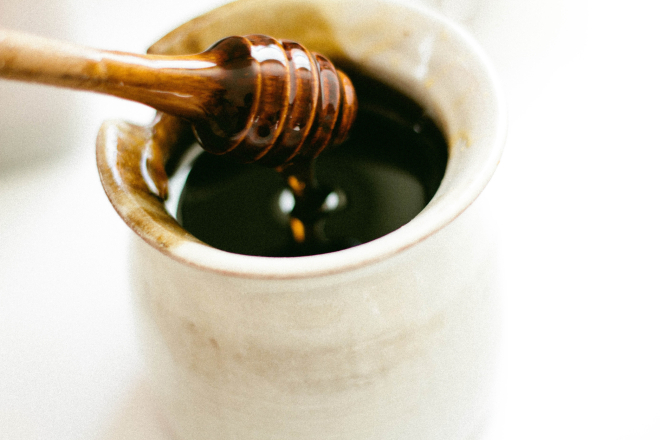
1. Honey
It’s best not to give children under the age of one any honey. That’s because there’s a chance it can contain bacteria that can cause a serious illness called infant botulism. Their immune system isn’t developed enough to cope at this age.
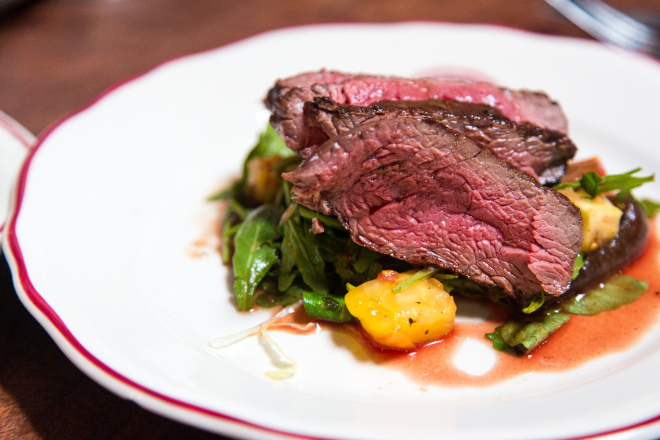
2. Safety First
Some foods carry a risk of food poisoning. Put
safety first and avoid giving children under one of the following foods:
- soft, mould-ripened cheeses, such as brie or camembert
- raw or undercooked shellfish
- soft-boiled or raw eggs – cook them until both the white and yolk are solid
- raw or undercooked fish or meat
- half-eaten food should not be given to under-ones again at a later stage
The risk of food poisoning can also be reduced with these cooking tips.
- When heating up food, always stir it well and make sure it’s steaming all the way through.
- Cooked food should not be reheated more than once.
- Cook all food thoroughly and check the temperature before offering food to your baby.
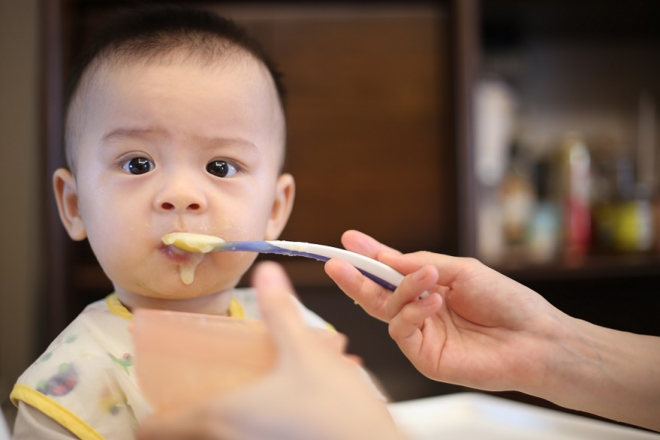
3. Allergies
It’s also important to be aware of
foods that can cause allergies(eg. wheat, nuts, soya, seeds, fish,
eggs and milk). Foods containing these ingredients should be introduced one at a time, with two to three days in between. This is so you can spot any allergic reaction.
It’s always best to start with quarter to half a teaspoon of each new food, and then slowly increase it over the next few days. Once the food has been successfully introduced, continue to give it to your baby regularly as part as their usual diet.
If you think your baby may be having an allergic reaction, stop giving the food and seek medical advice.
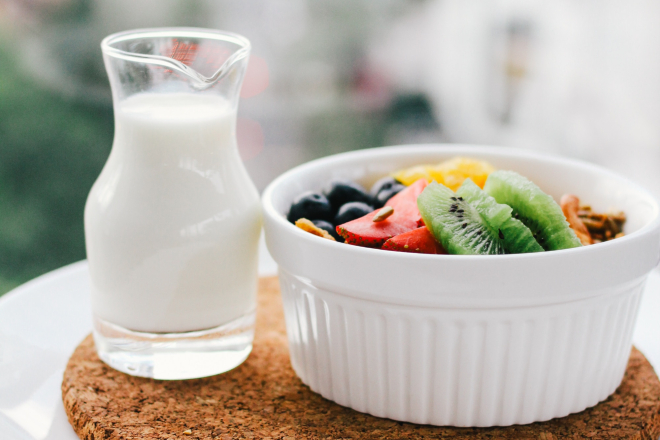
4. Choking Hazard
Always stay with your baby when they are eating in case they start to choke. Here are some tips to take on board before giving foods to your baby, to help prevent and reduce the risk of choking.
- Peel and lightly cook hard fruits and vegetables, eg apples and carrots.
- Slice small round foods, eg grapes or cherry tomatoes.
- Cut cheese into sticks rather than cubes.
- Remove any stones or pips.
- Remove all skin and bones from meat, eg sausages and chicken.
- Only give your baby foods in a form that is age appropriate.
It’s also important to never give whole or coarsely-chopped nuts to children under five years old. You can use nut butters such as almond or cashew butter, and crushed nuts in food.
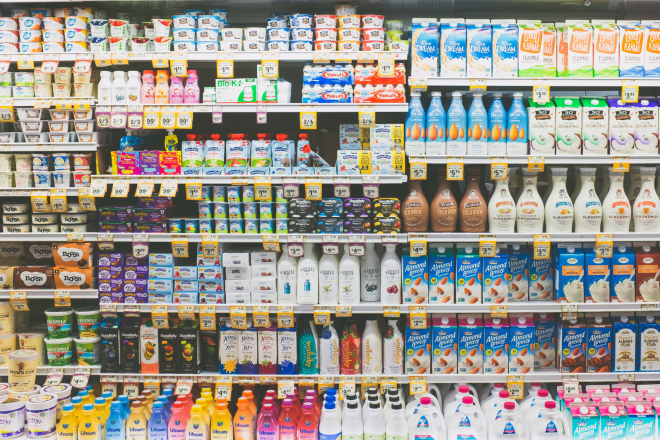
5. Dairy
Dairy products are a great source of protein and calcium. They also play an important role in developing healthy bones. But you’ll need to tailor these to their development. Here are my tips.
- Only breast milk and formula milk are suitable for babies under one. Cow’s milk isn’t suitable as a drink until after this age, but you can use it in cooking after they’re six months old.
- Hold off on goat and sheep’s milk for under-ones. They don't contain the right balance of nutrients for growth and development. Also, if your child is not able to tolerate cow’s milk, they are at high risk of having an allergic reaction to other animal milks.
- Wait until your child is two before giving them semi-skimmed milk, and wait a bit longer – until they’re five – to give them skimmed milk. As they’re growing fast at this age, they’ll need all those extra calories!
- If you’re looking to substitute cow’s milk with dairy-free alternatives, such as oat or almond milk, wait until your child is two. Although fortified versions meet calcium requirements, most of them are too low in fat. But you can give them to your child occasionally from one year onwards. Rice drinks aren’t suitable for children under five because of the levels of arsenic they contain.
If your child has a milk allergy or intolerance, get some advice from a health professional, such as your GP or midwife.
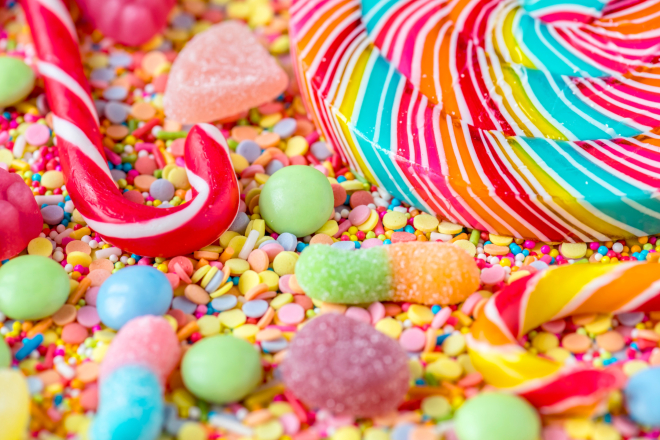
6. Sugar
Your baby does not need added sugar in their diet. Avoiding sugary snacks and drinks will help prevent tooth decay. This will also prevent them from having a sweet tooth once they get older. Check out my
Sugar swaps for kids article for tips on reducing your child’s sugar intake.
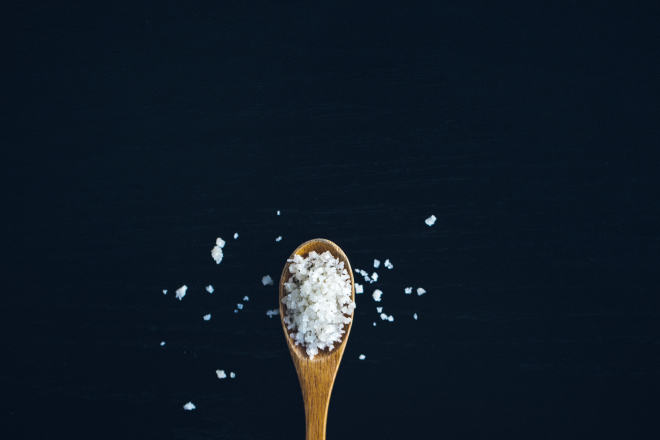
7. Salt
There’s plenty of hidden salt in processed foods these days. So, it’s a good idea to get into the habit of checking food labels, and out of the habit of adding salt to your food. Here are the maximum daily amounts of salt children should eat (it varies with age):
- birth to six months: less than 1g
- seven months to a year: 1g
- one to three years: 2g
- four to six years: 3g
- seven to 10 years: 5g
- 11 years and over: 6g
Remember these are the top limits! Ideally aim for less, and this will also help to ensure that your child doesn’t develop a taste for salt. Try flavouring your food with alternatives to salt, such as herbs and spices. Stock cubes are often high in salt so avoid adding these to your baby’s food.
Foods intended for adults, eg low-fat, low-sugar or artificially sweetened foods, are not suitable for children, as they need more fat and less fibre than adults.
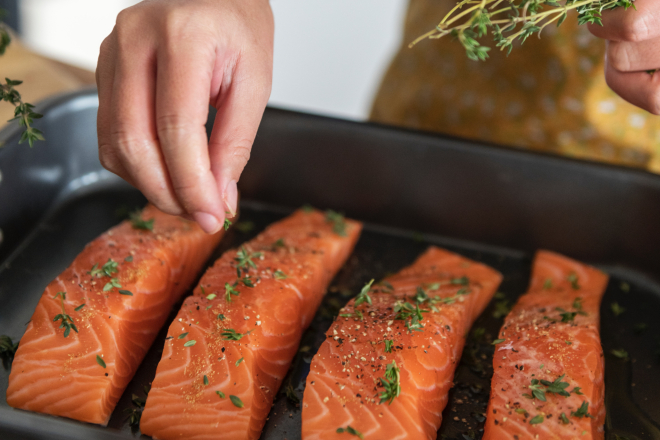
8. Fish
Fish like shark, swordfish or marlin can contain mercury, which can affect your child's nervous system. So, it’s best not to give these types of fish to babies, toddlers and children right up until the age of 16.
Younger children can eat other types of fish, such as oily fish like salmon, mackerel, trout and sardines. These contain long chain omega 3s, essential fatty acids that will play a role in their brain development.
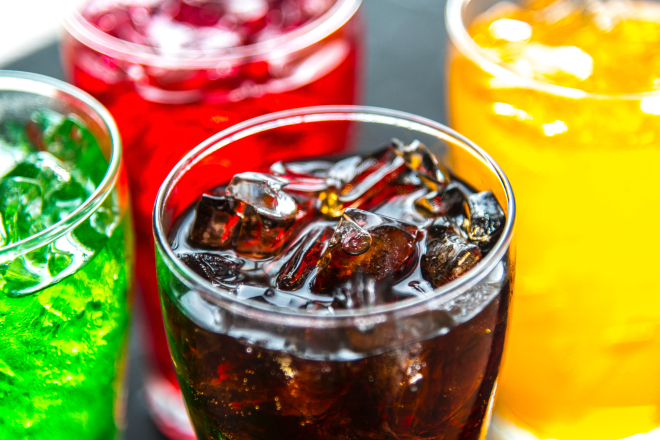
9. Fizzy Drinks
These contain whopping amounts of sugar! It’s best to avoid them as regularly consuming this amount of sugar can lead to tooth decay and obesity.
Encourage your infant to drink water as this really is the best choice. Milk is a great alternative too and will help to meet their calcium needs.

10. Caffeine
Tannins, which are natural substances found in tea and coffee, can interfere with how your child absorbs the nutrients in their food, so aren’t a good choice. Drinks that contain caffeine are also a bad idea for children.
[su_note note_color="#eeeeee"]
 bupaglobal.com
bupaglobal.com | 2531 8586 |
[email protected] [/su_note]
DISCLAIMER: This article was designed and produced by Bupa Global by searching internal and external data and information for information provision and reference purposes only. Any views or information mentioned and set out in this article/webpage are based on general situations. Readers should not regard them as medical advices or medical recommendations. Before making any decisions about the theme of this article, you are recommended to seek independent advice from suitable professionals (such as doctors, nutritionists, etc.). It is clearly stated that Bupa Global will not bear any responsibilities for others’ usage or interpretation of the information listed in this article. When preparing and/or updating this article, Bupa Global endeavours to ensure that the content is accurate, complete and updated but will not bear any responsibilities nor make any warranty or guarantee for the accuracy, completeness and timeliness of the information or for any claims and/or losses caused thereby.










 bupaglobal.com | 2531 8586 | [email protected] [/su_note]
bupaglobal.com | 2531 8586 | [email protected] [/su_note]